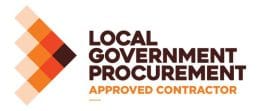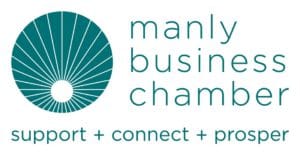How exciting, you have just been offered and accepted a new Job YAY! Congratulations!!! Then you remember you now must resign from your current job ugh yuk….
At Optimal Recruitment we believe how you conduct yourself at this stage is very important. We understand you may just want to leave today but you don’t want to burn any bridges. How you act now and during your notice period is very important and is a reflection on you and your work ethic.
- Before you start telling the world; ensure you have finalised all the details with your new employer. Have you signed your new letter of offer contract? Have you covered the start date, salary, up-coming holidays you already have pre-booked? Make sure everything is negotiated and in order before you tell your current manager you are leaving.
- Clean up your computer – Before you tell your boss you are leaving – delete personal files, personal email messages and get the contact details of anyone you wish to keep in touch with once you have left. While you may wish to see out your notice period your manager may want you to leave that day.
- Think about what projects you have on and have a rough idea on some recommendations you could give your manager on how you could transfer these responsibilities and tasks. Even though your leaving and you have more than likely mentally checked out – you don’t want to leave the team inundated with unfinished work or projects not even started that no-one knows about.
- Also have a rough plan on how you are going to tell your colleagues why you are leaving the company. Whatever your reasons for leaving your job keep your story consistent and positive. Don’t bad mouth your company, bosses or co-workers these things have a way of getting out.
- Write your resignation letter – we have included a sample below to help you on your way. We think you should be positive, thank them for the experience and offer to help do a handover, it may not be taken up, but the gesture will be appreciated. Also don’t forget your letter may be kept on file so don’t include any nasty comments that may come back to ‘bite you later’.
- Do not tell anyone else until you have handed in your formal resignation letter to your manager – ask them how they want to handle it as they may want to make the announcement on their terms. Also, what are your thoughts on a counteroffer? If your boss offers you a salary increase would you change your mind?
- Check with HR what you are entitled to when you leave? Do you have annual days owing? Any other employee benefits? Also, how much notice do you need to give? Check your current contract – 2 weeks’ notice is generally the standard practice but check your company policy. Try and give your employer as much notice as you can.
- Ask your manager for a reference. Also ask if they can be available via phone /email to provide a reference now and in the future. If your manager is happy to give you a review, ask if they could also leave you one on LinkedIn. A LinkedIn recommendation will be visible to anyone, it’s on your profile for ever and could come in handy in the future if you are job hunting again.
- Don’t forget to say goodbye to everyone before you leave. Sending an email farewell message to your co-workers letting them know you are leaving the company is fine, don’t forget to include your contact information so they can stay in touch with you.
Leave your job a positive note, rather than negative. You want a good reference and who knows where you may end up, and who you may work with again in the future.
Best of luck
The Optimal Recruitment Team
For additional inspiration, here is a resignation letter template/sample we have put together for you. It is not a one-size-fits-all letter, unfortunately, but should provide you with ideas on format and content.
Resignation Letter – Template
Your name
Your job title
Organisation name
Your Address
Your Email
Your Phone Number
Today’s date
Recipient’s name
Recipient’s job title
Organisation name
Address
Dear Richard,
Please accept this letter as formal notification that I am resigning from my position as TITLE with COMPANY NAME. My last day will be Friday 6th March 2020.
Thank you so much for the opportunity to work in this position for the past Eight years. I’ve greatly enjoyed and appreciated the opportunities I’ve had at COMPANY NAME and I have enjoyed being part of the team.
Please let me know how I can help during this transitional period. I am happy to help train team members and do a handover during this time.
I wish the company continued success, and I hope to stay in touch in the future. My personal email is YOUR@EMAIL.COM.AU and my personal mobile is YOUR MOBILE NUMBER
Should you require any additional information please don’t hesitate to get in touch.
Yours sincerely,
Your Signature
Your typed name














